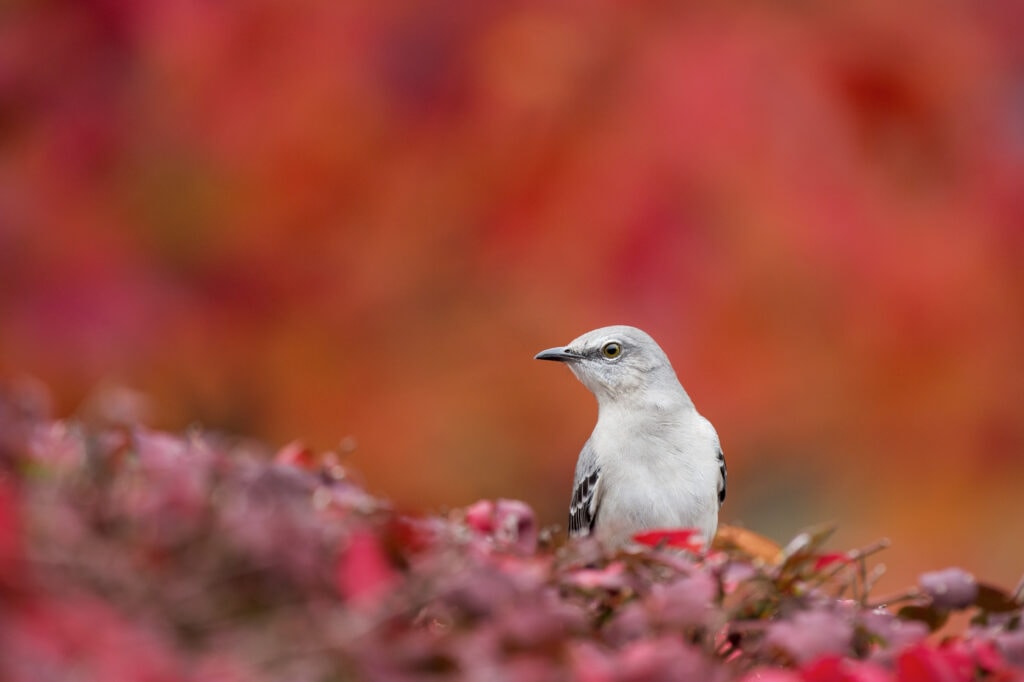Spring is a big season for birds and birding. In Arkansas, this spring season will, no doubt, be filled with the cries and songs of the Arkansas state bird. The Northern Mockingbird has been the official state bird of Arkansas since 1929. Northern Mockingbirds are common throughout Arkansas and are well-known for their daily and nightly singing, their gregarious personalities, and their tendency to mimic other sounds from their environments. Hence the “mocking.” Mockingbirds can mimic as many as 200 different sounds and may even mimic man-made sounds such as car alarms, or the sounds of other animals.
Related Article: Viral Bald Eagle Loses Chick After Nest Falls
Despite these fascinating traits, this spring in Arkansas is the setting of an interesting debate regarding the virtue of the Northern Mockingbird. House Bill 1842 was introduced to the General Assembly of the state of Arkansas on April 5th, 2023. The bill is simple and extremely brief. It moves to strike the Northern Mockingbird from Arkansas Code 1-4-118, which names the Northern Mockingbird as the official state bird. In its place, the bill proposes the Painted Bunting to be elevated to state bird status. Favorites amongst birders, the rainbow-hued Painted Bunting is a popular alternative for Arkansas citizens who feel that the Northern Mockingbird does not adequately represent the state.
One reason that legislators propose that the Northern Mockingbird be removed is the fact that it is not a unique state bird choice. As the state bird of Arkansas, Florida, Mississippi, Texas, and Tennessee, the Northern Mockingbird is the third most popular state bird choice after the Northern Cardinal and the Western Meadowlark which represent seven and six states respectively.
This commonality is not the only reason that some Arkansas citizens are interested in ousting the Northern Mockingbird as the state bird. Some take issue with the birds’ territoriality. Northern Mockingbirds are not too skittish to harass other animals which enter their nesting territories. As common backyard birds, familiarity may sometimes breed contempt as people find the scolding cries of the territorial Northern Mockingbird to be a nuisance.
The Painted Bunting is not the only bird that has been proposed as an alternative, either. House Bill 1849 was introduced shortly after its predecessor, House Bill 1842. This bill reads almost identically to House Bill 1842, but instead of the Painted Bunting, the Mallard Duck is proposed as a candidate. Both the Painted Bunting and the Mallard would be unique amongst state birds, which seems to be a selection criteria for both of these bills.
Some Arkansas birders may be attached to the Northern Mockingbird as a state bird, despite its detractors. While some see night singing as a nuisance, others find it comforting and beautiful. Territorial behavior may be seen as aggressive or annoying by some, but birders who enjoy Northern Mockingbirds often admire the scrappiness and personality that these birds have in droves. Whether or not the Arkansas state bird is indeed changed is up to Arkansas, but it is not hard to see why so many U.S. states have stuck with the Northern Mockingbird all these years.
Popular Article: Poisonous Birds Discovered In New Guinea Rainforest

